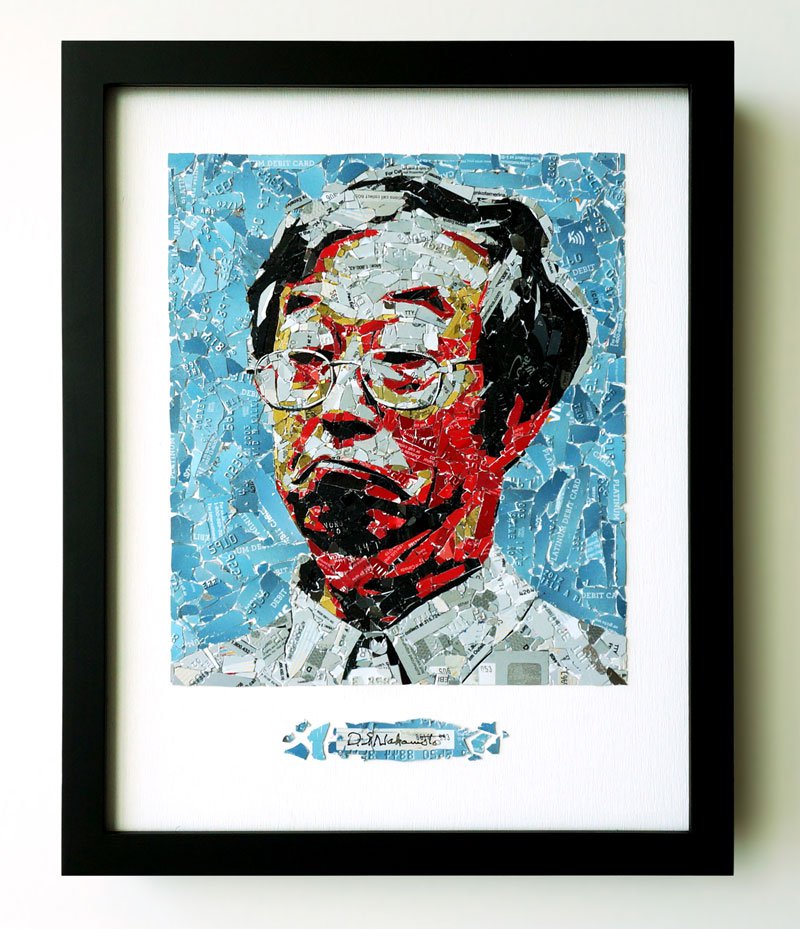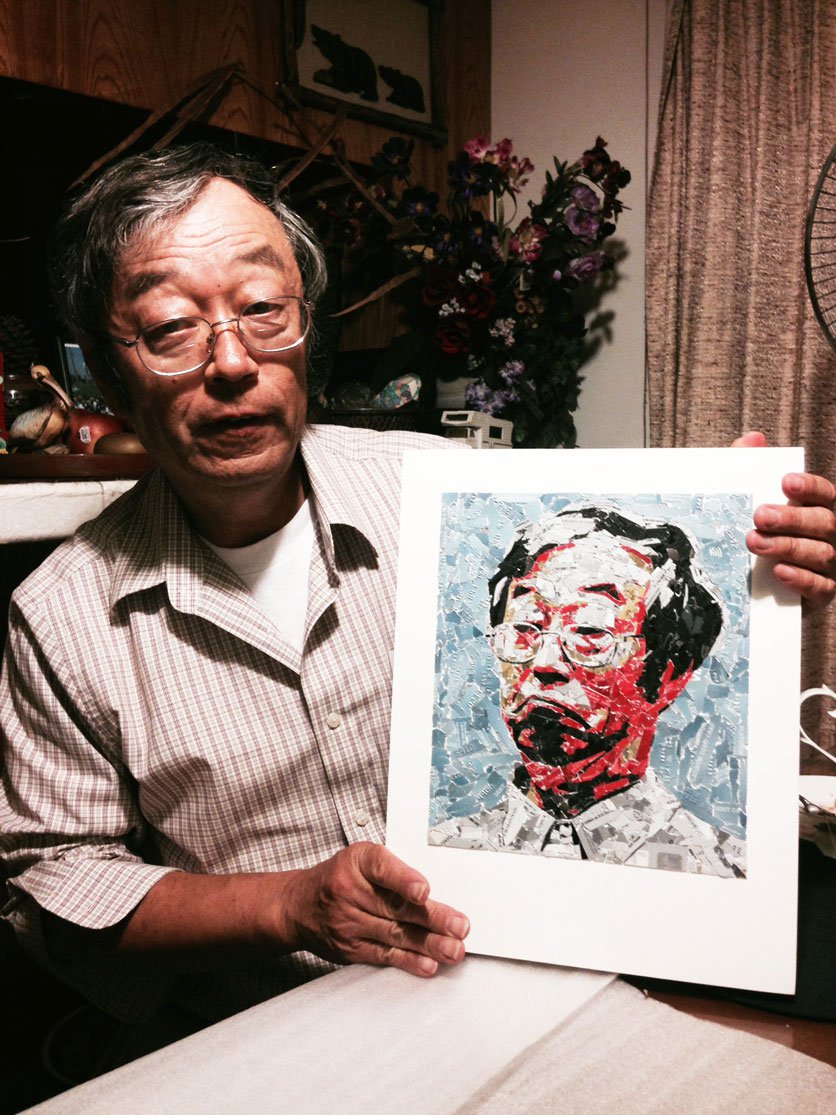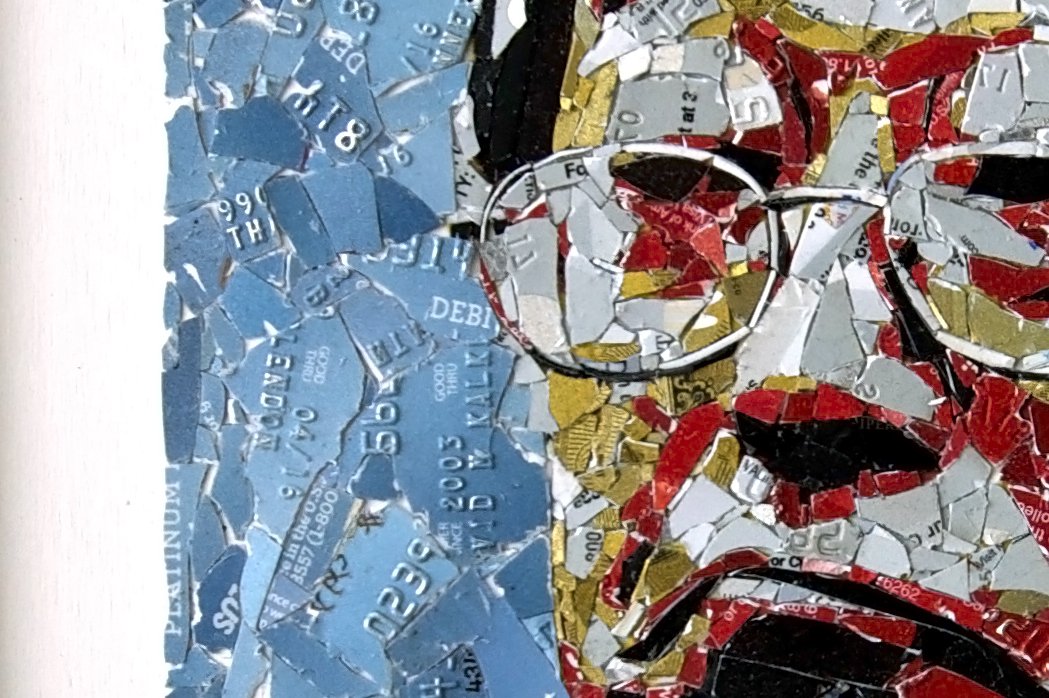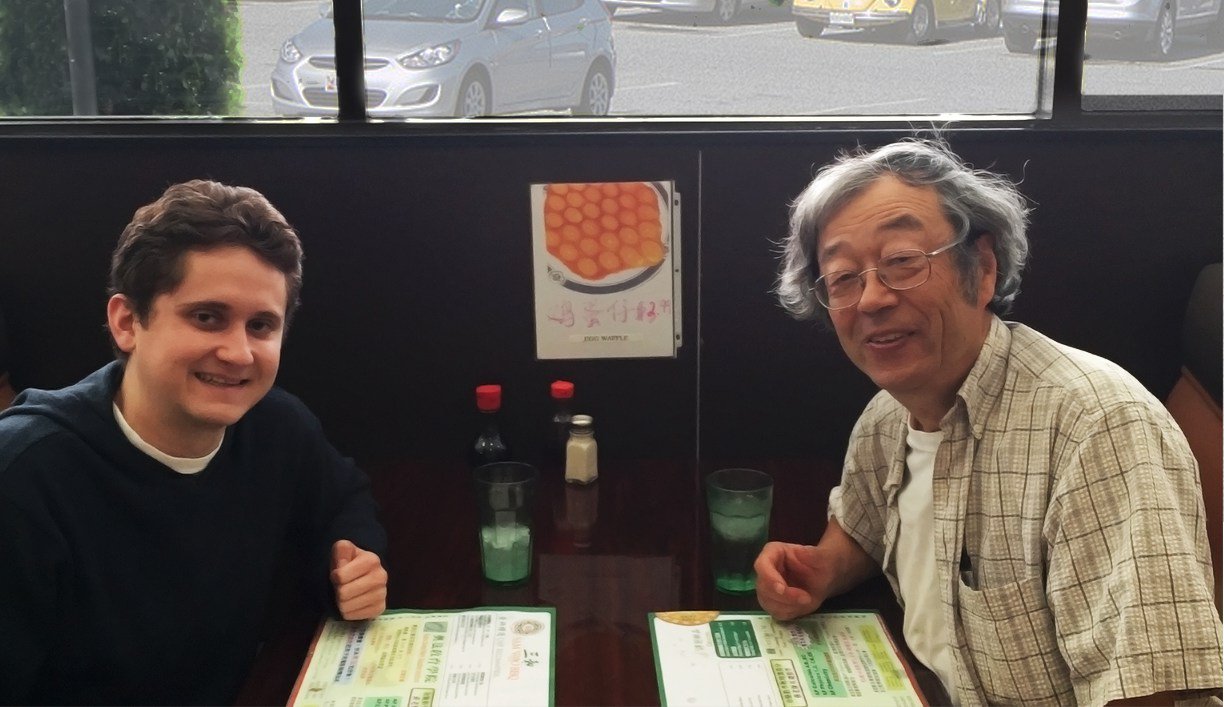How the Hunt for Satoshi Turned Dorian Nakamoto’s Life Upside Down: the Inside Story
Once More for Posterity: Dorian Nakamoto Explains Why He Is Not the Mastermind Behind the World’s Most Popular Digital Currency
Approaching the home that Dorian Nakamoto shares with his 93-year-old mother in the small Los Angeles County suburb of Temple City, one beholds a posted note under the doorbell declaring, “Private property: No solicitors or reporters.” Though I have come as an invited guest, the note stands as a stark reminder of the peculiar form of hell Nakamoto endured just a year and a half ago, when he was hounded to distraction by hordes of media and various curiosity-seekers after Newsweek magazine published a purported exposé that dubbed him the “Father of Bitcoin.”
The claim fell like a bomb on those who follow Bitcoin, and given Newsweek ’s longtime status as a paragon of mass magazine journalism, it engendered widespread discussion. The article, by Leah McGrath Goodman, served as the magazine’s cover story on March 6, 2014. It claimed to have uncovered the true identity of Bitcoin creator Satoshi Nakamoto, following a two-month investigation that included “interviews with those closest to (Dorian) Nakamoto and the developers who worked most frequently with him (“Satoshi”).
Citing Dorian’s past contracting work on top-secret engineering projects, an ingrained disdain for government intrusion, and using quotes from various family members which paint him as a humble, privacy-obsessed engineering mastermind, Goodman made a compelling though surface-level argument for Dorian Nakamoto as the creator of Bitcoin.
But following the article’s publication, most involved with Bitcoin were quick to question the validity of Goodman’s claims, seeing the evidence presented as largely circumstantial. A commonly held belief among those who are skeptical of Newsweek ’s claims is that “Satoshi Nakamoto” is actually an alias for a group of cryptographers/software engineers, rather than an individual. Others who corresponded with “Satoshi,” including core developer Gavin Andresen, believe he is in fact an individual.
Furthermore, a recent piece by Nathaniel Popper in The New York Times makes the case that if the creator was indeed an individual, he was probably BitGold inventor and noted cryptocurrency expert Nick Szabo, not Dorian Nakamoto (although Szabo, too, refutes these claims).
Still others have asked the logical question of why a humble and essentially private person such as Dorian Nakamoto would create Bitcoin, seek anonymity for that feat, and then choose an alias that includes his given last name, in light of all of the other measures he took to remain anonymous.
Mike Hearn, a developer who communicated with Satoshi prior to his departure from Bitcoin, even posted a blog entry that charted logical inconsistencies within Goodman’s claim that Dorian Nakamoto and Satoshi Nakamoto are one and the same.
Trial By Media Fire
The Newsweek story revealed sensitive details about Dorian Nakamoto in an effort to highlight personality traits and motivations that fall in line with what little there is to infer about Bitcoin’s creator. It ended up turning his world upside down.
In the midst of an unwanted media blitz that included what he describes as being unable to grab milk from the store without being barraged by reporters, Nakamoto gained support from lawyers and individuals in the Bitcoin community. One group even created the short-lived website “newsweeklied.com” that was intended to clear his name and raise funds for a lawsuit against the publication giant.
In a statement formally submitted to Newsweek by Nakamoto and his lawyer, he states that he “did not create, invent or otherwise work on Bitcoin,” and that, “Newsweek ’s false report has been the source of a great deal of confusion and stress for myself, my 93-year-old mother, my siblings, and their families.” He then ends the letter: “This will be our last public statement on this matter. I ask that you now respect our privacy.”
Given the definitive nature of that statement, I ask Dorian why he now desires to speak to the press. His simple answer: “Closure.”
Cookies and Courtliness
As we enter Nakamoto’s home, he leads me into the kitchen, where the table is neatly set with woven placemats, a Japanese style tea set and a box of chocolate chip cookies. It is immediately apparent that Nakamoto, 65, a bachelor with a past marriage and grown children on his family resume, may not regularly entertain new guests in such a quasi-formal setting, but he has his own sense of how to go about doing so. He exudes a kind of courtliness, reverence and respect for the occasion that young people today would likely describe as “old-fashioned.”
As I take my seat, he is quick to offer and pour me green tea, then proceeds to make sure that I am content and comfortable in a way that feels refreshingly sincere. Not drinking any tea himself, he settles into his seat and begins to form circles around the empty cup with his fingers. Far from the shrewd, eccentric man portrayed in the Newsweek piece, he appears much more as a kind and good-humored person, with an almost canonical approach to respect and hospitality. After an exchange of additional basic pleasantries, he chuckles to himself and says in his slow, deep voice, “OK. Ask me anything.”
At the crux of Newsweek ’s claim that Nakamoto is in fact the creator of Bitcoin is a brief exchange between Goodman and him, in which Goodman states that he “tacitly” acknowledged his role in the Bitcoin project by declaring to her: “I am no longer involved in that and I cannot discuss it. It’s been turned over to other people. They are in charge of it now. I no longer have any connection.”
The words “no longer involved” and “turned over” would seem to lend credence to the belief that Nakamoto was in fact involved in some capacity with the “Bitcoin project.” I ask him about this exchange specifically, seeking to gain some clarity on his response. He replies: “I was thinking about work I had done at Citibank that was security things, security exchange. Even if I was involved I can’t tell you, because every engineering firm makes you sign a nondisclosure contract for during and post. I thought maybe that [her question] was something to do with Citibank work that I did.”
This response provides potential clarity surrounding this pivotal exchange between Goodman and Nakamoto. He insists he was not even familiar with the term “Bitcoin” at the time of the Newsweek interview, and thought Goodman was referring to a project that he had worked on at Citibank. Why, at the time, he drew this conclusion about the connection between “Bitcoin” and his previous, confidential work for Citi is still not entirely clear.
The Case for and Against
The Newsweek piece emphasizes: “Perhaps the most compelling parallel between the two Nakamotos are their professional skill sets and career timeframes.”
While portrayals of work on classified military projects are commonly projected with an almost clichéd, sinister tone, Nakamoto’s’s reasons for the life of secrecy described by his family are far more practical than they are mysterious. In addition to the nondisclosure agreements he signs with each classified project, and his firm belief in abiding by what he describes as the “engineer’s code,” he also emphasizes that it is extremely advantageous for people in his line of work to be as private as possible in order to best preserve their job security.
In this and his other responses, it is clear that Nakamoto has the mind of an engineer, articulating each of his carefully constructed thoughts piece by piece, and attending to even the most seemingly minute details. Noting the measures that his employers take to ensure that contractors will not be motivated to exchange classified information for rewards, he explains how anything from debt to a troubled relative or an affair (remember David Petraeus’s exit from the CIA?) would be grounds for immediate removal, and likely result in permanent exclusion from classified projects.
He notes that since publication of the Newsweek article, which exposed many personal details including sensitive information about his health and finances, he has been effectively “blacklisted” from the types of engineering jobs that he has worked on throughout his professional career.
Respect for the “Bitcoin Creator”
While the unwanted association with Bitcoin has brought significant hardship and stress to Nakamoto’s life, he brightens and is eager to thank the Bitcoin community for their “support.” He then expresses appreciation toward the “creator” for bringing Bitcoin’s blockchain technology to the world.
“The more I study about it, I think it’s a fantastic idea. I really appreciate what he [Satoshi Nakamoto] did, and all the people who contributed, including [Bitcoin core developer Gavin] Andresen and Andreas [M. Antonopoulos, Bitcoin entrepreneur and security expert].”
Warming to his topic, he continues: “And then the free software, freeware–that is a brilliant idea on the part of this creator or group of creators. But you also need very talented people to implement and carry it out; also marketing, sales. I just feel when I looked at it, I said ‘Wow! This is a beautiful thing.’ Especially if you are anti-authority or anti-establishment, which would be banks and governments and things like that. And they [Bitcoin] have a hold of young people now, including Jeffrey right here!
“I’d like to see how Bitcoin evolves into the next stage. How it encounters this problem, I won’t say problem, but government is always trying to encroach. Same thing with banks. And we will have to withstand the storm of what’s going to happen to our dollars as the international standard exchange currency….The biggest thing is we can’t possibly pay,” he says, in reference to the American debt. “My hope is that the top level designers, the creators, think about that.”
I am astonished to hear that Nakamoto has such high praise for the technology, and moreover, that he has clearly thought about how it should evolve, drawing on the nuances of the economic implications surrounding a decentralized currency/monetary system, and in light of the current geopolitical environment.
Riding Toward a Powerful Future
Nakamoto’s car, a faded beige Toyota Corolla, which “still runs great” after having logged almost 200,000 miles on the odometer, is not his preferred method of transportation. Driving to grab some Chinese food in Temple City, he points out the flawed street design and cracked sidewalks that obstruct his frequent bike rides around town.
Chuckling as he explains what he sees as simple solutions to basic infrastructure problems, he notes the pleasure and peace he finds in his regular bicycle rides, smiling as he recounts past excursions through the San Gabriel foothills and on the banks of the Los Angeles River. (Yes, there is such a thing, but it is mostly a wide concrete channel traversing the L.A. basin.)
In his New York Times piece, Popper states, “At this point, the creator’s identity is no longer important to Bitcoin’s future.” While most Bitcoin observers would likely believe this to be true, it is also clear that the unique mindset, convictions and motivations that governed “Satoshi’s” approach have had a meaningful, lasting effect on the enterprise, and they warrant examination. In this regard, Satoshi Nakamoto becomes more than the “genius” (or geniuses) who created Bitcoin—he also created Bitcoin, took no credit, and left the fortune amassed by his own creation completely untouched, all in order to best preserve the purity of a powerful idea. And that is a world-changing thing, quite likely unique in human history.
It is almost impossible for most of us to imagine a person or group who would have both the technical skill set to create Bitcoin and the ability to faithfully execute on such selfless principles. This draws us to figures like Nick Szabo and Dorian Nakamoto. Both men’s personalities and beliefs align with the characteristics that make Satoshi Nakamoto such a uniquely compelling figure. While such investigations are, for these reasons, entertaining and thought-provoking, they do clearly affect—in Dorian’s case, severely affect—the individuals under examination.
Moreover, such attempts to unveil the creator’s identity go against (what appears to be) Satoshi’s desire for Bitcoin to evolve as a truly inclusive open source project, in which the actual identity of its creator is ultimately unimportant.
With all that said, I am glad I was able to spend a day with Dorian Nakamoto in Temple City. I hope that this account will shed some light on Newsweek ’s so-called “Father of Bitcoin,” and perhaps help provide him with the closure that he seeks. If so, it couldn’t happen to a humbler guy.
***
Postscript: After learning of Dorian’s financial complications, his friend cryptograffiti created a piece of artwork that will be auctioned off with 100% of the proceeds going to Dorian. The artwork is also signed by Dorian, who will be conducting an AMA on Reddit later this week. The auction will be accepting bitcoin exclusively and will run until October 15th, 2015 at 7pm PST. Please submit sealed bids to [email protected] .



The post How the Hunt for Satoshi Turned Dorian Nakamoto’s Life Upside Down: the Inside Story appeared first on Bitcoin Magazine.



